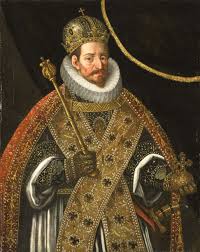emperor
推荐文章

n. 皇帝,君主
n.
皇帝,君主;
变形
复数:emperors
双语释义
n.(名词)[C]皇帝,君主 the ruler of an empire
英英释义
emperor[ 'empərə ]
n.
the male ruler of an empire
red table grape of California
large moth of temperate forests of Eurasia having heavily scaled transparent wings
同义词:emperor mothSaturnia pavonia
large richly colored butterfly
同义词:emperor butterfly
词组短语
emperor penguin n. 皇企鹅
双语例句
用作名词(n.)
The emperor was actually a political eunuch.
那个皇帝实际上没有政治实权。
The emperor conferred a title on the brave soldier.
皇上授予这勇敢的士兵一头衔。
He knelt in front of the emperor with a look of entreaty.
他面带恳求的神态跪在皇帝面前。
The general overthrew the last emperor of that country and established a public.
将军推翻了那个国家的最后一个皇帝,建立了共和国。
Napoleon called himself Emperor of the French.
拿破仑自称为法国皇帝。
权威例句
The Emperor's New MindEmperor penguins and climate change
The Emperor's New Security Indicators
The Emperor's New Security Indicators
Empowerment: the emperor's new clothes.
Emperor's New Mind: Concerning Computers, Minds, and the Laws of Physics
The emperor's new drugs: An analysis of antidepressant medication data submitted to the U.S. Food and Drug Administration.
The toxic Aβ oligomer and Alzheimer's disease: an emperor in need of clothes.
Relative Effects of Survival and Reproduction on the Population Dynamics of Emperor Geese
The toxic Abeta oligomer and Alzheimer’s disease: An emperor in need of clothes. Nature Neuroscience, 15(3), 349-357
emperor
emperor: see empire
emperor (n.)
early 13c., from Old French empereor "emperor, leader, ruler" (11c.; accusative; nominative emperere; Modern French empereur), from Latin imperiatorem (nominative imperiator) "commander, emperor," from past participle stem of imperare "to command" (see empire). Originally a title conferred by vote of the Roman army on a successful general, later by the Senate on Julius and Augustus Caesar and adopted by their successors except Tiberius and Claudius. In the Middle Ages, applied to rulers of China, Japan, etc.; non-historical European application in English had been only to the Holy Roman Emperors (who in German documents are called kaiser), from late 13c., until in 1804 Napoleon took the title "Emperor of the French."
1. The Oxford University was honoured by the inspection of the Emperor.
牛津大学有幸受到皇帝的视察。
-- 来源 -- 英汉 - 辞典例句
2. In reply to it the Emperor decreed merely that an advisory council be created.
皇帝的答复只是下旨设立一个资政院。
-- 来源 -- 英汉 - 辞典例句
3. A little later at Fontainebleau the emperor abdicated.
稍后皇帝在枫丹白露退位了。
-- 来源 -- 英汉 - 辞典例句
4. The emperor is a figurehead.
那皇帝是有名无实的首脑。
-- 来源 -- 英汉 - 辞典例句
5. The Emperor is a renowned patron of learning.
这位皇帝是一位有名的崇尚学术的君王。
-- 来源 -- 英汉 - 辞典例句
6. Emperor Nero attended the bacchanalian orgy.
尼禄皇(罗马暴君)参加了狂饮的祭酒神仪式。
-- 来源 -- 英汉 - 辞典例句
7. Here the emperor conducted his business: issuing proclamations, meeting visitors.
皇帝在这儿处理政务:颁布诏书,接见朝臣。
-- 来源 -- 英汉 - 辞典例句
8. The emperor wills it,so it must be done.
皇帝要那样,因此必须那样做。
-- 来源 -- 英汉 - 辞典例句
9. Before long, sensing danger, the Emperor recalled them.
不久,帝国意识到危在旦夕,召他们回国。
-- 来源 -- 英汉 - 辞典例句
10. The First Emperor of Qin unified China in 221 B.C.
秦始皇于公元前221年统一中国。
-- 来源 -- 英汉 - 辞典例句
